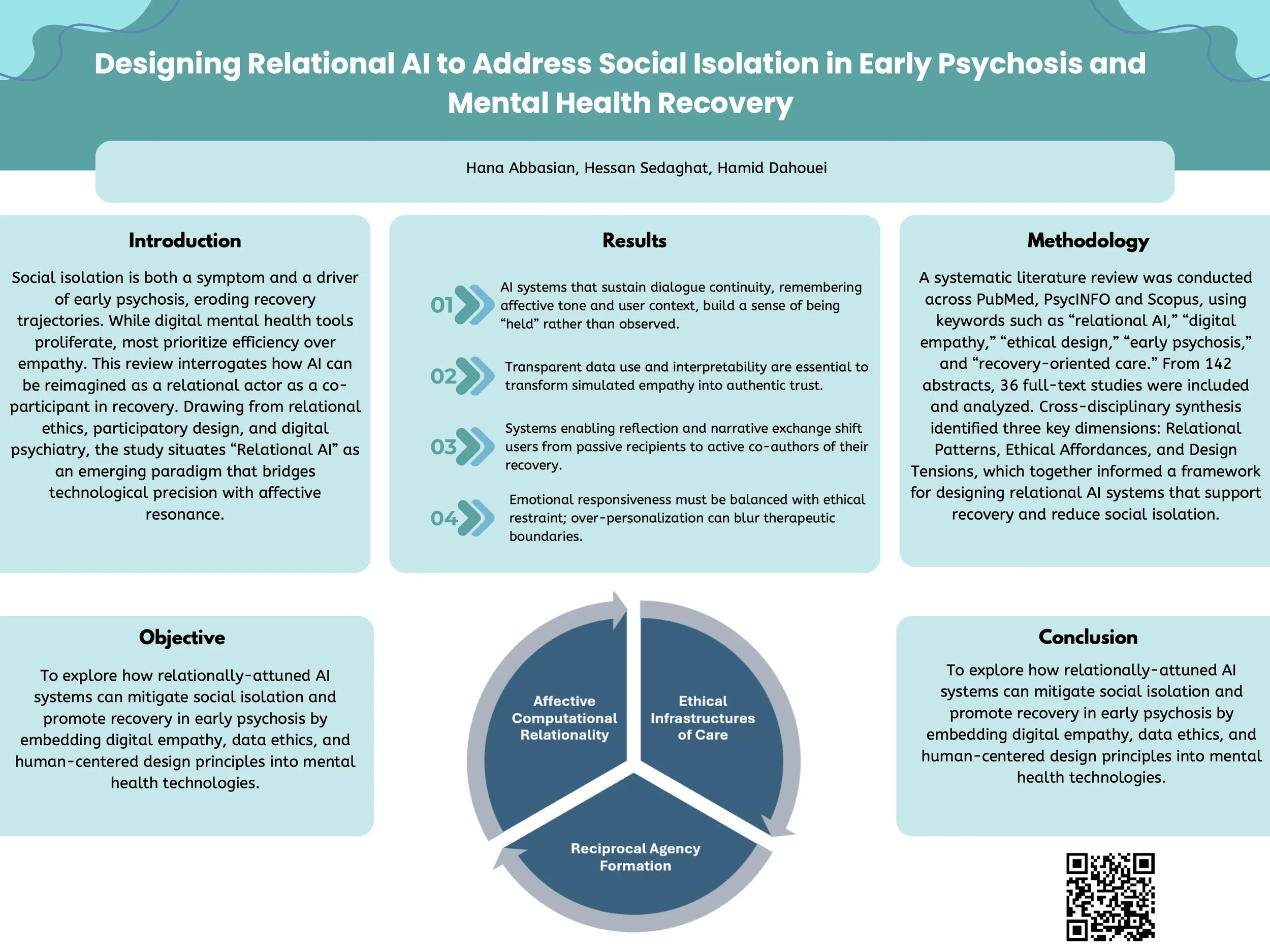Designing Relational AI to Address Social Isolation in Early Psychosis and Mental Health Recovery
Hana Abbasian (1), Hessan Sedaghat (2), Hamid Dahoue (3)i, Brandi C. Fink (4)
Institutions:
1. Harvard Medical School, Boston, MA, United States
2. Harvard Graduate School of Design, Boston, MA, United States
3. Harvard Kennedy School, Boston, MA, United States
4. Department of Psychiatry and Behavioral Sciences, The University of Oklahoma College of Medicine, Oklahoma City, OK, United States
Presented at the 2025 Mass-STEP Conference on 11/03/2025
Social isolation is a pervasive and modifiable risk factor across the spectrum of mental health conditions, and is particularly consequential in the context of early psychosis. It compounds emotional dysregulation and stigma, and also interferes with engagement in care, recovery trajectories, and quality of life. Despite the proliferation of digital health tools, few interventions center the relational and somatic dimensions of isolation in ways that are trauma-informed, user-driven, and emotionally resonant.
We present findings from an ongoing mixed-methods study of a novel behavioral health device and mobile platform designed to support individuals experiencing social withdrawal, emotional dysregulation, and distress. The system, named ENSO, integrates focusing-based somatic journaling, mindfulness-based interventions, and an AI-driven conversational mode that reflects and grounds users in real time. A core feature allows users to hear messages from loved ones, introducing warmth, familiarity, and human connection into moments of internal overwhelm.
This work is informed by a literature review on social isolation in psychosis and related disorders, which shows the urgency of interventions that are both scalable and person-centered. Our study combines behavioral tracking, user interviews, and survey-based experience assessments, with participants representing a range of psychiatric diagnoses and recovery journeys. Preliminary feedback suggests increased emotional clarity, perceived support, and reduction in distress following device use. This project explores how relational AI can contribute to broader systems of early intervention and recovery, offering a low-barrier, emotionally intelligent complement to existing mental health care models. . As part of broader efforts to expand access and improve early intervention, ENSO may contribute meaningfully to statewide systems of care, particularly in addressing social isolation and emotional dysregulation in under-engaged populations. Ongoing work will further evaluate implementation potential and user outcomes across diverse care settings.

